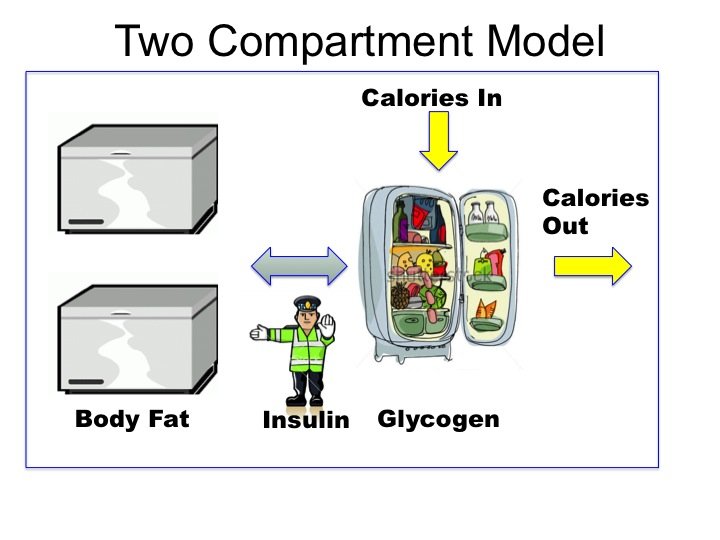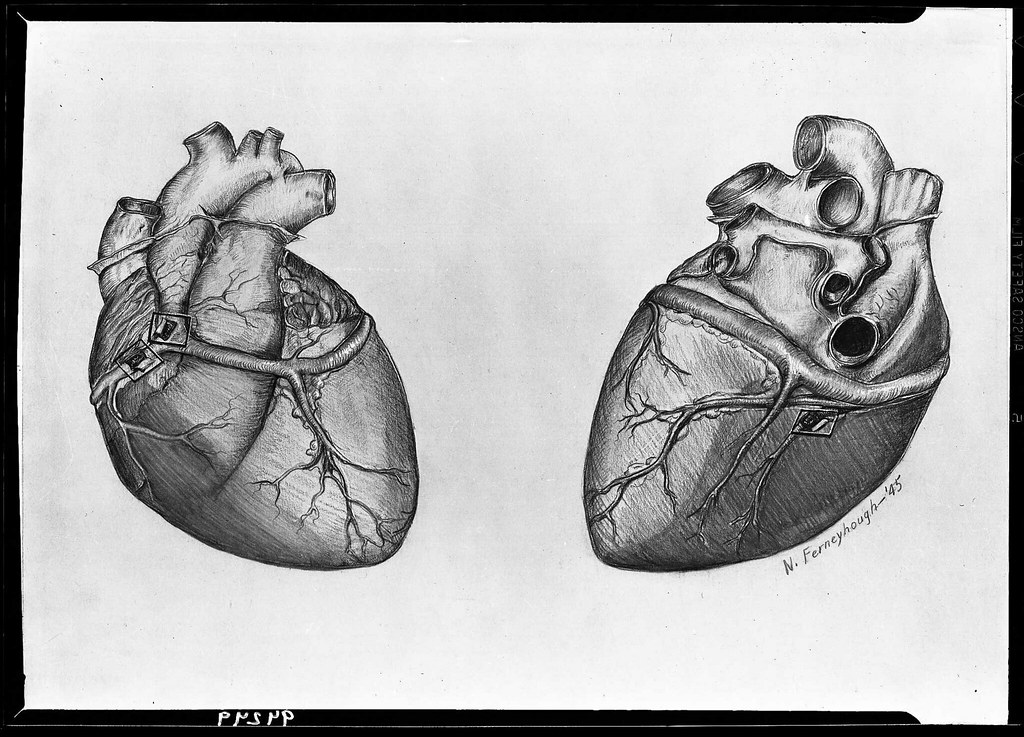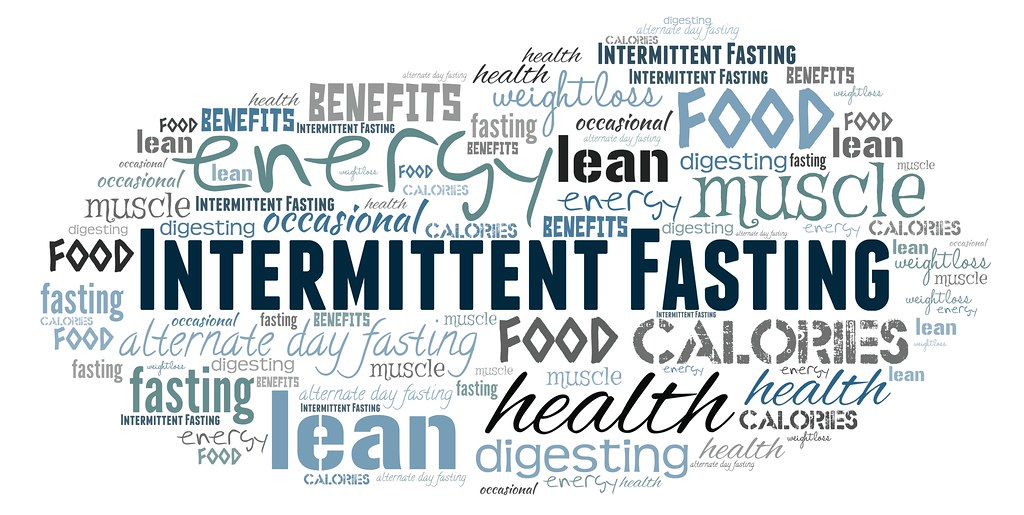Many people ask us; are there any benefits to intermittent fasting?
In short, yes there are many benefits to intermittent fasting, some which may surprise you too. As you continue to read this article, you will learn all about what fasting can do for you in the short and long term.
First though, let’s take a look at what intermittent fasting actually is, before we go into more details about the benefits of a fasting program.
Many people may already be aware of what intermittent fasting is, and they may even be familiar with some of the most common health benefits when following this particular protocol. However, when it comes to intermittent fasting there are far more benefits to be had than you might have first thought.
Following any form of fasting program can drastically improve ones health both physically and mentally. Not only this; your lifestyle and productivity in general can take a huge upturn as a result.
Just in case you are not aware of what intermittent fasting is, I will briefly give a short overview here. Essentially, intermittent fasting is a protocol in which you abstain from food, and certain fluids for a prolonged period of time. Any food or drink that contains calories and stimulates a metabolic response in the body is avoided for that duration of time.

There are many different forms of fasting in which your fasting and feeding windows last for various lengths of time. Some of the most common protocols are;
- 16-8 – With this format you don’t eat or drink calories for 16 hours, and then you consume all your caloric intake for the day within the 8 hour feeding window before fasting for 16 hours again. This is one of the easiest methods to do begin with when getting started with the fasting lifestyle.
- 18-6 – With this method, you fast for 18 hours and then you consume your daily caloric intake within a 6 hour window.
- 20-4 (AKA The Warrior Diet) – You can probably guess this one by now! You fast for 20 hours and consume you daily caloric intake within a 4 hour window. This protocol is a more advanced strategy and it is only best to attempt this once your body is used to fasting.
- OMAD (One Meal a Day) – Some die hard intermittent fasting fans consider the OMAD diet the ‘holy grail’ of fasting! With this method you do what it says on the tin and you eat only one substantial meal a day. This particular protocol is particularly powerful because after about 19 hours of fasting, your body begins to reap some of the more elusive benefits of fasting. This includes benefits such as autophagy and anti-ageing which we will discuss more in depth later.
Now we have a general understanding of this time based protocol, we will now look at some of the health benefits of intermittent fasting. There will be some common ones in the list that you will already be aware of. However, some of them will surprise you I am sure!
Fat Loss
Perhaps one of the most well known benefits of intermittent fasting is fat loss, and this is one of the main reasons that many people decide to begin a fasting program in the first place.
It is true that fasting is more effective than many other diet programs out there including the dreaded calorie restricted eating plan that millions of people fail with every year.
“How does fasting actually work in terms of fat burning though; and why is it superior to many other methods?”
Calories in vs calories out theory for fat loss that the vast majority of people are familiar with is fundamentally flawed. The theory assumes that all calories are equal. However, we know this not to be true. We can not oversimplify how different foods a processed in the body and the hormonal effect they have.
Most people believe that the only way to loss body fat is to either reduce the amount of calories you take in through food or increase the amount of calories you expend through exercise.

The diagram above is a great analogy that depicts how most people view the calories in, calories out theory for fat loss. It is in fact a myth!…Or at the very least an over simplified explanation. There is no such thing as one big container in your body that stores calories. In reality your body doesn’t really know what a calorie is. In actual fact, weight gain is more like a two compartment problem. The analogy I am going to share with you now was made popular by the world leading fasting expert Dr Jason Fung. Dr Fung has a great visual way of explaining how the body actually gains and loses weight.
Take a look at the diagram below.

The picture above shows how fat gain is actually a two compartment problem. Whenever you eat a balanced meal, the carbohydrates and/or sugars in that meal are turned into glucose. Imagine that this glucose is then stored in the ‘fridge’ (aka your liver). It is very easy to store glucose in the liver, and likewise it is very easy to take glucose out and use it as energy. Just like when you go to your fridge in the kitchen, you can easily fill that fridge with your food shopping. You can also just as easily take food out to eat it. It is quick, easy and convenient. However, there is only a limited amount of space in that fridge and similarly there is only a very small amount of space in your liver for glucose from food. Therefore, if you keep eating those 6 high carbohydrate meals a day, you soon run out of space in your liver and so the excess glucose overflows and gets pushed into fat cells instead. The situation now is that you gain body fat which can be very hard to lose if you don’t understand an effective method for doing so. This entire process is moderated by the fat storage hormone insulin which is represented in the above diagram as the traffic cop.
Most people eat far too much far too often which causes the pancreas to secrete a large amount of insulin. This insulin then tells the body to store glucose energy from food in the liver. If the very limited space in the liver runs out, then the insulin continues to store that glucose energy, but in the fat cells instead, causing the person to gain weight.
Therefore, the key to efficiently burning body fat is to avoid spiking insulin, thus allowing the liver to deplete of glucose which in turn forces the liver to burn body fat for fuel instead. There are a few methods of reducing insulin secretion, but one of the most effective is intermittent fasting!
Let us look at what happens when we abstain from eating and drinking calories for a prolonged period of time.
So to continue with our analogy, what we need to do is to stop going food shopping (eating), consume all our food in the fridge (deplete the liver of glucose), which then forces us to break into those freezers in the basement for food (burn body fat).
The second image down shows this process in graph form. Notice how as the consumption of carbohydrates is reduced, fat oxidisation (AKA fat burning) increases exponentially. So now we can see how intermittent fasting allows our body to access its own fat stores by depleting the body (in particular the liver) of Glucose.
Reduced Hunger
As your body gets accustomed to fasting and you start to burn your own body fat for fuel, you will find that your hunger massively decreases. This is because over time your body becomes what is called fat adapted as we develop metabolic flexibility. The Mitochondria are the bodies ‘power plants’ which are responsible for converting the caloric energy from food into energy that the body and its cells can use. The longer amount of time you engage with an intermittent fasting program, the more effective your body becomes at burning fat. In fact, the amount of Lipase Enzymes available in the body that are responsible for oxidising fat for energy are significantly increased. Your body is now aware of your fat stores and it knows it can tap into this fuel source at any time it needs to. This means that you don’t get as hungry as often and also your metabolism increases because your body now knows that there is a larger fuel source available to you; not just the little amount of glucose that is stored in your liver.
In summary, if after about 3 weeks to a month of intermittent fasting you notice that your hunger levels have massively decreased, you have lost a lot of body fat and you feel mentally focused, then you are most likely fat adapted to a certain degree.
In the video below, one of my favourite intermittent fasting experts on YouTube explains fat adaptation and intermittent fasting further.
Cures Insulin Resistance and Improves Insulin Sensitivity
When a person is carrying excess body fat, this generally means that their body is not as efficient at processing Carbohydrates and sugars. This is often due to the person in question consuming a high Carb/sugar diet over a long period of time. You see, fat gain is a time dependant phenomenon. Consuming a diet that spikes Insulin levels excessively over a prolonged period of time leads to a condition known as Insulin Resistance.
The main job of insulin is to open up liver and fat cells to allow glucose from the blood stream into them after eating food. If a person continues to consume foods and liquids that spike insulin excessively, then the liver cells soon become full and begin to over flow with the glucose. Therefore the pancreas tries to overcompensate for this by secreting even more insulin whilst pushing glucose into fat cells instead as discussed in the weight loss section earlier. This precisely is how insulin resistance causes obesity.
To make this process easier to understand, observe the picture above. The inflated balloon represents a liver cell that is overflowing with glucose due to a carbohydrate and sugar heavy diet. Because this cell is full, the pancreas releases even more insulin to try to get the excess glucose out of the blood stream. However, because the liver is overworked, the insulin starts to put the glucose into fat cells instead.
The simple solution to this Insulin Resistance problem is to abstain from food, or partake in a very low carbohydrate and sugar free diet for a period of time as previously discussed in the weight loss section. This allows the body to burn off the stored glucose in the liver and fat cells which will in turn allow the body to respond normally to insulin again.
Improved Gut Health

Digestion is a very energy intensive process for the body. Fasting gives a chance for the gut to rest, and cleanse itself. Not only this, but a study from 2014 discovered that fasting promotes Bacterial Clearance.
The image below shows the title of the study, and you can click on the link below the image and checkout the study for yourself if you wish.

In summary, the research found that when mice were put through alternate day fasting they were able to clear Salmonella twice as fast as the non-fasted mice. The bacteria just passed through the intestines and was not absorbed into the body. The fact that is study was performed on mice rather than human subjects does not really discredit the research that much. The reason that researchers use mice in studies like this is that they know the the results are pretty much the same as to what it would be in humans. So it’s all good news for your body and its guts if you do intermittent fasting on a regular basis. You inner workings are going to be much healthier, and your gut will fight off bad bacteria much more efficiently.
Not only this, but the process of intermittent fasting also promotes the growth of good bacteria. The stress (good stress) that fasting puts on your gut causes the immune system to up its game and so more good bacteria is colonised. In turn this causes;
- Better resistance to bad bacteria
- Improve symptoms of IBS
- Cures acid reflux
- Improves indigestion
- Regulated bowel movements
- Many more….
Good for Your Heart Health and the Cardiovascular System

Intermittent fasting is very effective for reducing the risk of cardiovascular disease, heart attack an other related health issues.
It was commonly believed that an over abundance of so called LDL “bad” cholesterol was the primary cause of heart attacks and cardiovascular disease due to a diet that was too high in fats. This however, is simply not the case. In fact cholesterol is essential to the body’s ability to function. Cholesterol is so important to the body that is is produced by nearly every single cell in your body. You NEED Cholesterol to survive! In fact, over 75% of cholesterol is made by your body and not ingested through your diet.
“If Cholesterol is really that bad for you then why is 75% of your total Cholesterol made ‘in house’ by your own body?”
NEWS JUST IN!…

It is in fact the oxidative stress that an over abundance of glucose in your body has on your your arterial walls that cause Cardiovascular disease and heart attacks.
In simplistic terms, if you consume too much sugar or carbohydrates over a long period of time, then inflammation and tiny cracks start to appear in the walls of your arteries. As a result, the LDL Cholesterol turns up at the site of the damaged artery and acts as a band aid by forming a coating over the inflammation. This, by the way is a good thing. It is the Cholesterol’s job to repair the damage. The only reason the LDL turned up in the first place was because of the inflammation of the artery that was caused by high glucose levels in the bloodstream.
“Blaming LDL Cholesterol for Blocking an Artery and Causing a Heart Attack is Like Blaming Firemen for Causing a House Fire Just Because They Are Always At The Scene!”
Therefore, when you fast, you give your body a chance to burn off the glucose which in turn reduces inflammation all over the body including your arteries. This then means that LDL cholesterol does not need to try repair the damage which could end up inadvertently blocking your arteries. Another powerful reason for giving intermittent fasting a try!
Decreased Cancer Risk
It is becoming more commonly known that cancer cells feed and thrive on sugar in the body. When you fast or consume a low carbohydrate and sugar diet, you literally create an environment in your body in which cancer cells can nor thrive nor survive.

The global cancer statistics as shown above is worrying. This devastating illness impacts millions of people a year worldwide. There are many lifestyle factors that can be a catalyst for cancer. Some of them being;
- Over consumption of alcohol
- Smoking
- Poor diet and obesity
- Absorption/ingestion of carcinogens
And many more!

“More Than 40% of Cancer Cases Can Be Prevented!”
NBC News
Some causes of cancer are sadly either genetic, or as a result of old age. It is an unfortunate fact that as we age we become more at risk of many forms of cancer. However, as we can see from the NBC News statistics, almost half of the cancer cases we see today could be prevented through healthier and smarter lifestyle choices. We can also see from the above chart that smoking, obesity and alcohol are the leading causes of a fair amount of cancer cases.
As already mentioned, cancer cells feed on glucose. In fact cancer cells are 10x more receptive to glucose and insulin which in turn means that they are 10x more likely to thrive and multiply in a glucose infested body. On the flip side, cancer cell do not feed on fat and oxygen (fat oxidisation) for fuel at all. Therefore, if one intermittent fasts intensely and regularly, their glucose and insulin levels will drop and as a result significantly reduce the chances of cancer cells thriving in the body.
Less Risk of Alzheimer’s, Dementia and Parkinson’s Disease

There are a few theories as to how fasting can help prevent, or relieve the symptoms of Alzheimer’s and other related neurodegenerative diseases. Nothing is 100% proven yet, however promising signs are beginning to emerge in recent research.
A study carried out by the Department of Food and Nutrition at Hoseo University in South Korea found that intermittent fasting may help prevent age related memory loss and mental deterioration.

The concepts discussed in the study its self are fairly complex and make for very heavy reading. In essence though, the research looked at the effects of fasting on a group of rats with a form of Alzheimer’s disease in comparison to a group of rats without the disease. interestingly, positive results were observed.
“Intermittent fasting may be an effective intervention to protect against age-related metabolic disturbances, although it is still controversial.”
– Department of Food & Nutrition, Obesity/Diabetes Center, Hoseo University
A popular theory as to how fasting helps prevent and reduce symptoms of neurodegenerative diseases is to do with how the brain utilises glucose for energy.
It is known that degenerative diseases in the brain are mainly caused due to a high amount of dying brain cells. One theory is that with Alzheimer’s and related conditions, what has happened is that the brain is no longer able to use glucose for energy. For some reason the mechanism that the brain uses to use glucose has malfunctioned. Yet for most people it is glucose that their brains primarily run on. However, If you fast for a period of time, the body begins to produce ketones out of oxidised fat, which then can be used as an alternative fuel source by the brain. In many ways, the brain actually prefers ketones as a fuel source as it is a cleaner and more efficient form of energy. The one switches to using ketones for fuel rather than glucose, then a lot more of the brain cells are able to survive resulting in a reduced risk and/or relieved symptoms of many neurodegenerative diseases.
Improved Immune System and Decreased Risk of Illness
Intermittent fasting can also drastically increase the efficiency of your immune system which may help reduce the frequency and severity of some illnesses you encounter.
In short, fasting kills off white blood cell responsible for fighting illness and disease. Now this may sound like a bad thing, but actually what happens is that this encourages the T cells to produce even more white blood cells which gives a healthy boost to your immune system. . I am going to let fasting and keto expert Thomas DeLauer explain in this in more detail.
Boost in Testosterone and Human Growth Hormone (HGH)
It is now known that insulin inhibits the production of testosterone and human growth hormone when it is released. Not only this, but healthy natural fats are essential for hormonal balance and testosterone production in both men and women. For this reason, when one undergoes prolonged fasting and the body is functioning primarily on fats, testosterone levels are significantly increased. In fact, every time we eat, for 3-5 hours afterwards out testosterone levels are significantly reduced.

The European Journal of Endocrinology released a study that proved the effectiveness of fasting in boosting testosterone and HGH levels. The research found that fasting increased the levels of Luteinizing Hormone in the brain which signals to the sex organs to produce more testosterone. The study also found that Lutenizing Hormone increased by 20% in obese individuals and a massive 67% in non-obese individuals when fasting. This is a significant increase which can have many positive effects on your life.
The most common benefits of elevated testosterone levels are;
- Increased muscle mass
- Decreased body fat
- Increased libido
- More energy
- Strengthened bones
And many more…
Improved Mental Focus and Enhanced Mood and Less Stress
When you fast for a a significant amount of time, your body starts to burn its own fat for fuel. The body oxidises this fat and produces something called ketones. These ketones are an alternative energy source for the body once all the glucose has been used. Ketones are actually a preferred energy source for the brain. They cross the blood/brain barrier more easily and they also provide more energy per unit of oxygen than glucose. The result of result is using ketones for fuel during periods of fasting appears to lead to reduced depression and an enhanced positive mental state in those who partake in prolonged fasting. Many subjects even report a euphoric feeling after 2-3 days of fasting.
A review by Fond Et Al looked looked into how many studies they could find that examined the effect of fasting on mood and brain disorders. They conducted a search on the Medline, Web of Science and PsycINFO databases to see what they could find.

The clinicians found a total of 92 studies!
“Clinicians have found that fasting was frequently accompanied by an increased level of vigilance and a mood improvement, a subjective feeling of well-being, and sometimes of euphoria.”
Fond G Et Al
As a collective, these studies found that;
- After 10 days of fasting, patients with clinical depression reported an 86% remission rate of their condition.
- Other studies found that fasting or calorie restriction in healthy participants or those with medical issues showed improved energy levels, improved mood and reduced depressive and anxiety symptoms.
- Another study that looked at the effects of fasting on Muslims during the month of Ramadan found that they experienced a decrease in both manic and depressive symptoms.
It would appear that fasting has enormous benefits on mood and mental health. Just another one of the many positive by products of fasting.
Autophagy

Essentially, autophagy is the bodies process of eating its own deformed and dead cells, and replaicing them with new ones. This is the cornerstone of the anti-ageing process. However, autophagy and the anti-ageing benefits associated with it, are only achievable through a more extreme and prolonged form of fasting. Generally a fast of more than 19 hours needs to take place before autophagy begins to occur in the body.
So how is autphagy stimulated in the body as a result of fasting? Well, when the body runs out of glucose (as it does when we are in a moderate to severely fasted state), the body starts burning its own body fat for fuel. As a direct result of this, the enzyme AMP – Activated protein kinase is released. This enzyme is only released as a result of burning fat for fuel rather than glucose. When this happens the process of autophay begins and the healthy cells in the body break down the dead or malforrmed ones whch then allows new cells to be created.
The most common benefits of autophagy are;
- Increased longevity
- Reduced cancer risk
- Prevention or delay of neuro-degenerative diseases
- Reduced inflammation
- General anti-ageing
And many more…
So are there any benefits to intermittent fasting? – The Final Verdict!
In summary, intermittent fasting is something that can be extremely beneficial for your health, fitness and fat loss goals. The positive effects of fasting go far beyond aesthetics and fat loss. They go as far as helping to improve your general health. With ever more people around the world becoming interested in fasting, maybe the current global obesity and health epidemic will be a thing of the past in the not too distant future.
 This article has been reproduced with permission and courtesy of Nick at The Muscle Expert.
This article has been reproduced with permission and courtesy of Nick at The Muscle Expert.




Comments are closed.